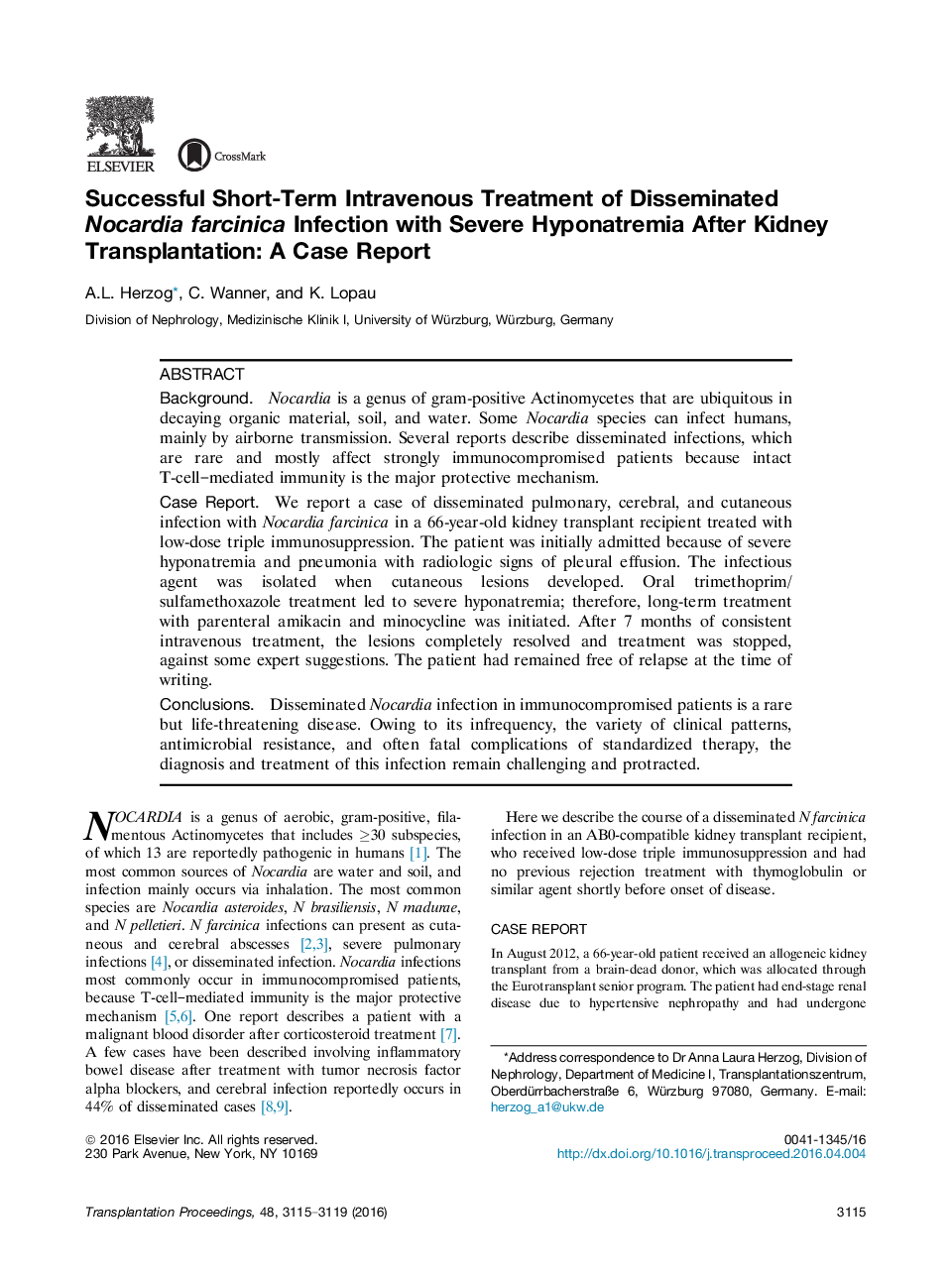| Article ID | Journal | Published Year | Pages | File Type |
|---|---|---|---|---|
| 5729045 | Transplantation Proceedings | 2016 | 5 Pages |
â¢We report a case of disseminated pulmonary, cerebral, and cutaneous infection with Nocardia farcinica in a 66-year-old kidney transplant recipient treated with the use of low-dose triple immunosuppression.â¢Nocardia infection is a rare and life-threatening disease, usually occurring in severely immunocompromised patients or patients with blood malignancy.â¢The present patient was initially admitted because of severe hyponatremia and pneumonia with radiologic signs of pleural effusion.â¢The infectious agent was isolated when cutaneous lesions developed.â¢Oral trimethoprim/sulfamethoxazole treatment led to severe hyponatremia; therefore, treatment with parenteral amikacin and minocycline was initiated.â¢After 7 months of consistent intravenous treatment, the lesions completely resolved and treatment was stopped.â¢The patient received only 7 months of treatment, and immunosuppression was not stopped, though decreased, to save the kidney graft, and he had remained free of relapse up to the time of writing.
BackgroundNocardia is a genus of gram-positive Actinomycetes that are ubiquitous in decaying organic material, soil, and water. Some Nocardia species can infect humans, mainly by airborne transmission. Several reports describe disseminated infections, which are rare and mostly affect strongly immunocompromised patients because intact T-cell-mediated immunity is the major protective mechanism.Case ReportWe report a case of disseminated pulmonary, cerebral, and cutaneous infection with Nocardia farcinica in a 66-year-old kidney transplant recipient treated with low-dose triple immunosuppression. The patient was initially admitted because of severe hyponatremia and pneumonia with radiologic signs of pleural effusion. The infectious agent was isolated when cutaneous lesions developed. Oral trimethoprim/sulfamethoxazole treatment led to severe hyponatremia; therefore, long-term treatment with parenteral amikacin and minocycline was initiated. After 7 months of consistent intravenous treatment, the lesions completely resolved and treatment was stopped, against some expert suggestions. The patient had remained free of relapse at the time of writing.ConclusionsDisseminated Nocardia infection in immunocompromised patients is a rare but life-threatening disease. Owing to its infrequency, the variety of clinical patterns, antimicrobial resistance, and often fatal complications of standardized therapy, the diagnosis and treatment of this infection remain challenging and protracted.
